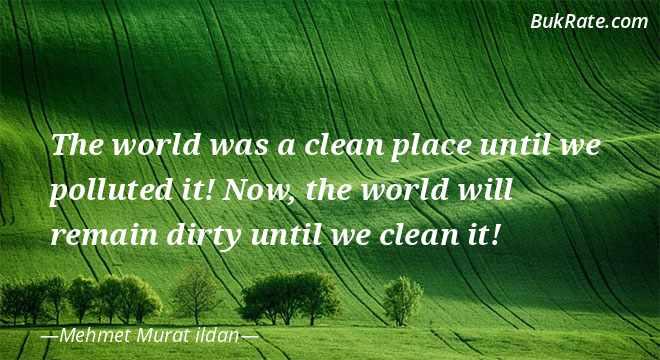Environment
Helplessness in the Face of Dirt
- By solomon2day
- On 02/11/2021
- Comments (0)
- In Solomon's Column

In early Victorian Britain, health and cleanliness were visible challenges in the slums.
The outbreak of cholera in 1832 and 1837 prompted the Government to probe the causes of the fever.
In 1838, three medical experts-Dr. Southwood-Smith, Dr. Arnott, and Dr, Kay-submitted Reports anchored on the physical causes of Cholera fever in London. This included Dr. Southwood-Smith's worrisome account of the slums of Bethnal Green and White chapel.
Indeed, the above mentioned and others-the Report of the Health Towns Committee published in 1840 and the Report by the Poor LawCommission, authored by Edwin Chadwick and published in 1842-the Report on an Inquiry into the sanitary condition of the laboring population of Great Britain, in addition to the Royal Commission which also compiled Reports in 1844 and 1845 revealed that although Britain was blazing the trail in the world in industrial development, living conditions of its citizens were in a terrible and poor state, with typhoid fever wreaking havoc among the populace.
Interestingly, major cities and towns in Nigeria presently are very dirty and overcrowded, while estate developers ignore the rules and regulations guiding the erection of structures.
Several homes and shops are constructed in the smallest space with inferior materials and active connivance of government officials.
The dirty habits of the people and absence of facilities for environmental sanitation have converted these cities and towns to poisonous dens of filth and disease, where refuse habitations include streets, drainages, roads, and residential premises.
The poor state of septic tanks in homes, badly constructed drainages, lack of potable water, and poor environmental sanitation practices among the people have exposed the nonchalant population to various diseases including Cholera.
Of note is the fact that residents and occupants of No. 5 Kehinde Aderibigbes Street, Olorunsogo, Molete, Ibadan, Oyo State, Nigeria, not only vandalized the next building, No. 3 but also converted it to a refuse dump and place where excreta is also dumped.
Government officials have long before now admitted the evil, but blame their superiors for the public health situation.
Those-in Chrage at all levels of government look on helplessly as the people contend with the hazards of a dirty environment.
Also read-Legalizing Crime and Criminality
-Landlords and Tenants Associations, Crime and Criminality
-Law Enforcement: The Reactionary Approach
-Government Workers-A Subject of Debate
Strategies against Filthiness
- By solomon2day
- On 23/03/2021
- Comments (0)
- In Solomon's Column
The indiscipline attitude of the people has brought about the depreciation of the environment.
Presently, heaps and heaps of refuse characterize the environment in most states.
Sadly, the lack of political will coupled with the very weak resolution of the government has impeded the effective enforcement of laws and policies.
Indeed, the environment of Olorunsogo, Molete, and several other communities in Ibadan, Oyo state are sick and shall remain so, until the residents are compelled to do the right thing.

Strangely, the occupants of No. 5 Kehinde Aderibigbe Street, Olurnsogo, Molete(two-story building) mobilized other residents of the community to vandalize and convert the private property at No. 3 to a refuse dump.
The culture of the people now includes among others, throwing out waste materials indiscriminately and in any available space, while dumping of garbage and other harmful material continue unabated.
Although most state governments assume some responsibilities of ensuring a habitable environment, same have failed to develop strategies toward the sanitation of the environment.
Of note, is that roadside traders, criminals on motorcycles, and cultists thrive in states where those in charge desperately seek political preservation.
Of worry, is that various categories of criminals converge daily in a space directly opposite the entry of the Government House in a state to ply their trade
The mind-boggling human and financial resources that have been sunk in the fight against the filthy environment in most states is now the debate among the people.
The involvement of the private sector in environmental sanitation has had little or no impact on the environmental conditions of major cities in Nigeria, except for the monetary gains for the contractors.
Curiously, community leaders and other residents have over the years provided moral and financial support for cultists and other categories of criminals mainly because they reap indirect benefits from criminality.
Affordable Waste Disposal Fees will Reduce Illegal dumping of Refuse-Prof. Olagoke
- By solomon2day
- On 26/11/2020
- Comments (0)
- In The People Talk
 The Nigerian environment is confronted with a myriad of challenges including urban decay, squatter settlements, stack fumes, unregulated and grossly excessive automotive and related exhausts, and poor environmental sanitation habits.
The Nigerian environment is confronted with a myriad of challenges including urban decay, squatter settlements, stack fumes, unregulated and grossly excessive automotive and related exhausts, and poor environmental sanitation habits.
The attitude of the government on issues of poor waste management and land-use practices, the use of obsolete and environmentally unfriendly technology and equipment, poor and non-functional waste management equipment, and deteriorating services by decaying infrastructure have contributed greatly to the worrisome situation at hand. In several communities in Nigeria, such as the Olorunsogo, Molete area of Ibadan, Oyo state, residents dump refuse in private residences. Sadly, the interest of Government in consultants by some State Governments for the purpose of waste disposal has not helped matters.
In this interview, the Founder, Spiritual Head, and Grand Imam of Shafaudeen-in-Islam Worldwide, Prof Sabitu Olagoke says that when the Government makes waste disposal fees affordable, cases of illegal dumping of refuse would reduce.
In what ways do you think the Government at all levels can secure a quality environment adequate for good health and well being?
In Nigeria the enlightenment on best environmental practices is absent. The Government intervention in the areas of waste management needs to make use of sanitary inspectors to compulsorily go out with other members of the task force, not only to enforce the law but to regulate and control the exercises on a daily routine basis. It is natural for man to generate waste in his activities to survive through the natural experience of his physiological activities vis-a-vis food from raw materials processed into products to the consumption end. The production of every ware such as clothes, hides, and skin for shoes and other packaging materials as well as all the materials that constitute construction processes for human habitation, transportation. Pollution, therefore, can be experienced in three forms, air pollution which has to do with the respiratory system of humans, water pollution which happens to be the essentials of life for humans, and land pollution on which all human activities are carried out.
The Government must be sensitive to the challenges confronting the environment. Most often Nigerians are seen on the mountain heap of refuse and debris looking for spent materials to sell to those who may recycle, reuse, or those who will want to process them into waste minimization without using any safety or security protocols, such people may eventually become victims of pollution which if not treated may lead to a dire state.
At the domestic front, the government needs to make the reduction of indoor air pollution with house plants compulsory most especially at the grassroots level.
The Government through its agencies must discourage the absence of regulation and control by ensuring that the undermentioned industries outside residential areas, so as not to endanger people's lives-lead acid battery recycling, industrial mining, lead smelting, industrial/municipal dumpsites, industrial estates, chemical manufacturing and dye industry among several others.
Generally, we must all agree that the illegal dumping of refuse can cause beatification damage to the environment, hence the government must work on population growth, ignorance of the people, high level of waste production, fees for waste disposal, appropriate technology for waste disposal management and waste control.
The negative effects of the illegal dumping of refuse deserve attention.
States and Local Governments, therefore, need to collectively consider the health implications on the people to do the needful in combating the menace of the illegal dumping of refuse and poor waste management strategy. Thye needs to involve members of the public in waste management, by counseling them to make reports of cases of the illegal dumping of refuse as well as ensuring that the law is enforced.
The Government must make waste disposal fees affordable, this would go a long way in eradicating illegal dumping of refuse. The State and Local Governments must role model for ease of domestic practices, the three concepts of Reduction, Recycling, and Reuse.
Nigerian have to move from conservative and dirty habits to an environmentally friendly attitude.











